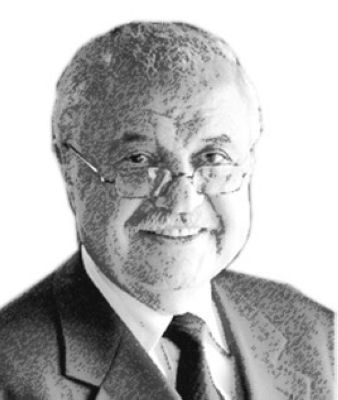A trendy wave of populism is now invading the western countries and casting its shadows on the rest of the world. Populism cannot be linked to particular voters, specific socio-psychological profiles or a certain “political style”. We do not have with populism a clearly defined ideology such as socialism, liberalism or neo-liberalism. But populism shows a specific and identifiable internal logic: populists are not only hostile to the “elites”, the experts and public figures who help those around them navigate the heavy responsibilities that come with self-rule but they are fundamentally anti-pluralistic. Their constant claim is that only “we”, represent the true people.
In a conference at Lisbon lately, Shawn Rosenberg, the professor at UC Irvine, stirred his audience by challenging a core supposition about America and the West. His theory? “Democracy is devouring itself, and it won’t last.”
As much as President Donald Trump’s tolerant critics might want to throw America’s troubles on his lap, Rosenberg says the president is not the cause of democracy’s plummet, even if his successful anti-immigrant populist movement may have been symptomatic of democracy’s decline. “We are to blame, he said.” As in the constitution: “we the people.”
Democracy is an ongoing hard work. And as society’s “elites” have increasingly been shelved, citizens have proved inept intellectually and emotionally to administer a well-functioning democracy. Consequently, the center has crumpled and millions of frustrated and perplexed voters have turned in desperation to the right-wing populists.
In deeply rooted democracies like the United States, democratic governance will continue its unstoppable weakening and will eventually nose-dive at the hand of the populists who claim holding a single distinction between left and right that is read by them as wrong and right.
The last half of the 20th century witnessed the golden age of democracy. In 1945, as per most observers there were just 12 democracies throughout the world. By the end of the century there were 87. But then came the great setback: In the second decade of the 21st century, the swing to democracy abruptly and worryingly stopped, and gradually upturned.
Right-wing populist politicians have taken power or threatened to do so in many European countries, Brazil and the United States. As Rosenberg notes, “by some metrics, the right-wing overall populist share of the popular vote in Europe has more than tripled from 4 per cent in 1998 to approximately 13 per cent in 2018.” In Germany, the right-wing populist vote augmented even after the end of the Great Recession and after an influx of immigrants entering the country diminished.
What caused that shift is the fact that democracy and representation are two different things. Representation is not necessarily a democratic principle. Populists are by no means hostile to the principle of representation. As long as they are in opposition, they repeat the old-time thing that the people are represented by evil elites, and even corrupt elites. In addition, any criticism of bad representatives quickly turns into a fundamental critique of democratic institutions.
Democracy, let us repeat, is a hard work that requires a lot from those who indulge in it. It requires people to respect those with different views from theirs and even people who differ from them. It asks citizens to be able to sift through large amounts of information, and process the good from the bad, the true from the false. It requires thoughtfulness, discipline and logic.
Today, thanks to social media and new technologies, whoever accesses the Internet may circulate a blog and garner attention for his cause, even if it is rooted in a plot or based on a false claim. People now get their news from social media rather than from stereotype newspapers or the antiquated TV news networks (ABC, CBS and NBC), fake news proliferates to the pleasure of president Trump who enjoys recapping them. And while democracy makes many demands, populists requisite just one: loyalty that entails yielding to the populist nationalist visualisation.
And this is by far no moment for optimism now or even in the foreseeable future. What is happening around the world shows that the far-right is forging its way through. And when it comes to the US, the problem might be larger than the controversial man occupying the white house and democracy will remain menaced no matter who is at the ship’s helm.
